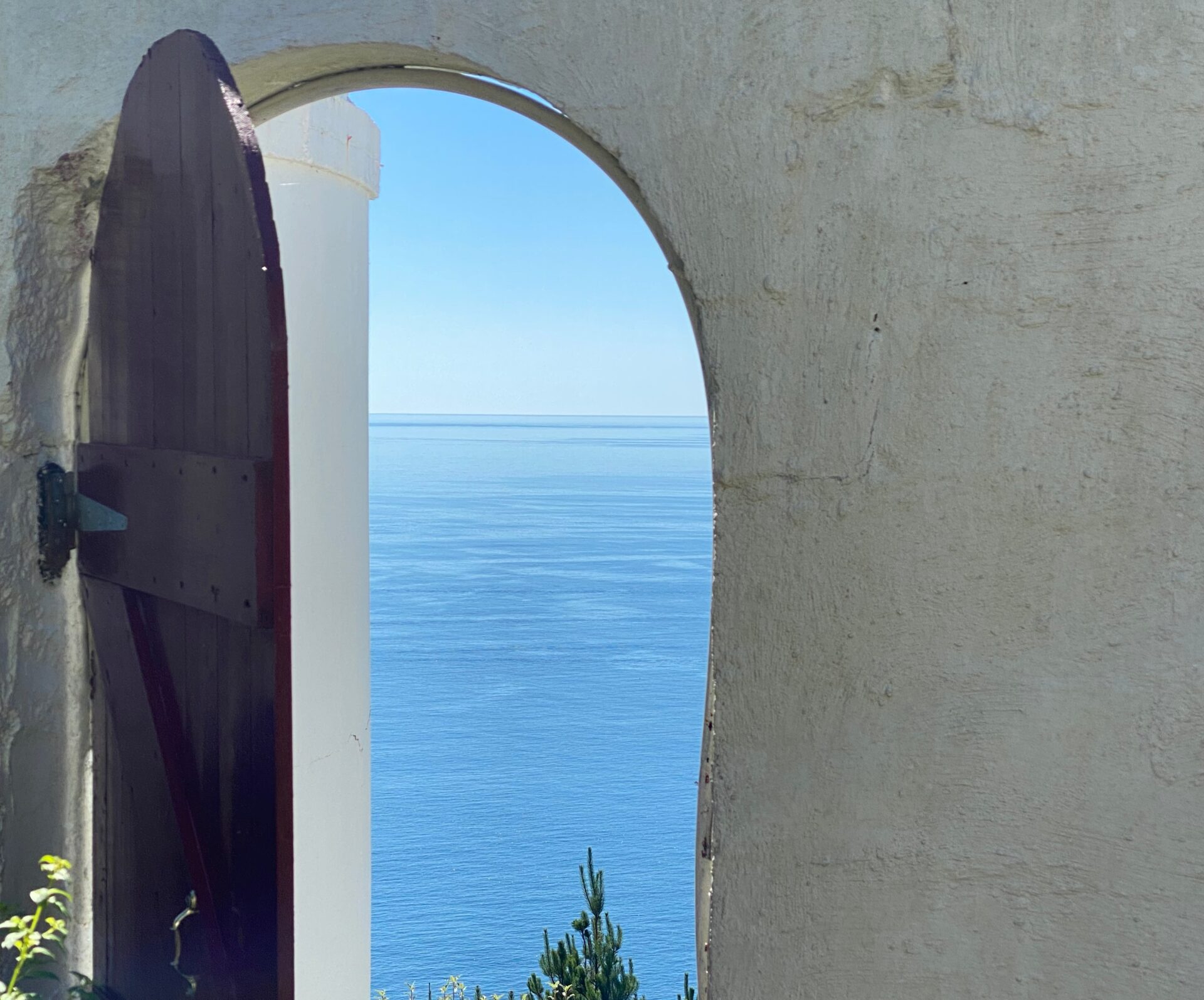Doors and windows always seem wondrous to me. I often can’t resist taking a photo of them even when they are actually very ordinary. But anything ordinary becomes wondrous when it catches your eye in some sudden, unexpected way and you look twice at it or even gaze at it. They don’t explain themselves rationally but seem to return the attention you give them.
This is why I thought of using this photo of a door that is just open enough to show us what is on the other side. In this case, a calm ocean the same colour as the clear light blue sky above it, both merging on the horizon. Horizons, of course, are merely illusions in the mind of the observer because when we see with the clear eye of the heart there is no horizon, only unity.
As we start the forty days of Lent, we can think conventionally of giving something up (usually something we may be even slightly, unconsciously addicted to, like sugar) and doing something extra (usually something we think we should want to do more of, like meditation). This is a good thing if it is done as a simple childlike practice. Then it reminds us we are dust and unto dust we shall return. The ashes drawn on our forehead like a temporary tattoo impress on us that we are made of earth and belong to the animal kingdom. But it also reminds us that our short journey in life is towards and beyond every horizon. We are luminous and conscious and capable of ever greater degrees of love.
In the gospel today Jesus teaches us to give up something and to do something. We need to give up the self-consciousness of the performer (or the observer) worrying about what God or other people are thinking about us. This typical concern of the ego blocks us from wonder and closes the door of consciousness. So this Lent why don’t we catch ourselves whenever we start to be controlled by the desire to look good or be admired. Jesus also tells us to do something, to go into our inner room, close the door and pray there in the clear light of God. Then we merge.
When we feel wonder the ordinary is reborn. Lent is the celebration of the ordinary. All w e have to do is return to the present. If we are sad it is a sign we are living in the past consumed with our thoughts and memories. If we feel anxious we are living in the future. But if we are at peace within ourselves and with others sadness and anxiety are overcome and we are in the present moment. We shouldn’t look back at past experiences of peace trying to recapture them. Nor should we postpone now the work of returning to the present until we have solved our problems and secured ourselves against the worst.
Whether we give something up and take on something extra, or not, we can do the most important thing of all that brings us to peace and benefits others: the practice of the presence of God.





